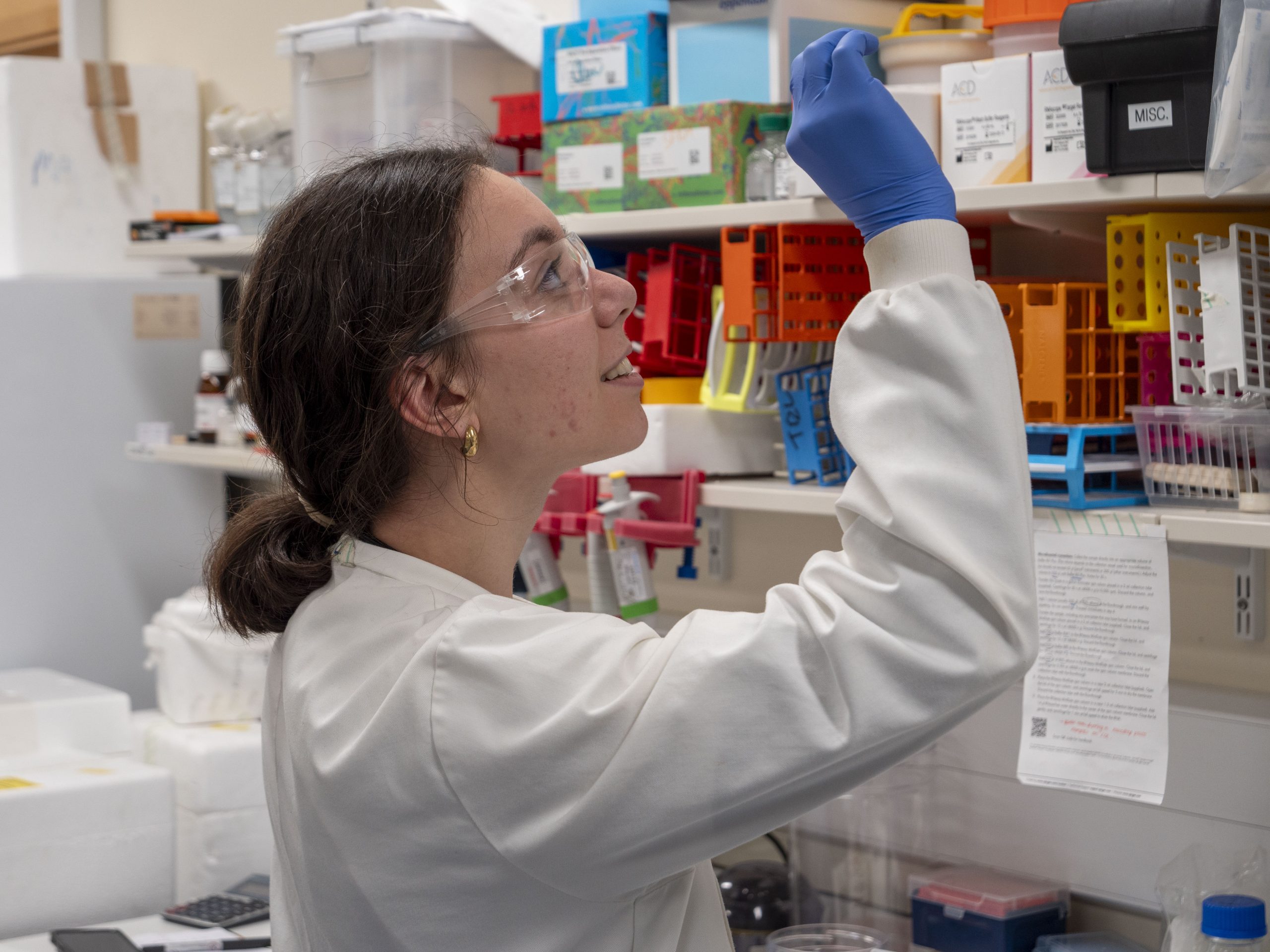Doctoral student a finalist in Greek International Women Awards
Maria Kyriazi, a third-year doctoral student, has been named as one of seven finalists in the Young Star category at the Greek International Women Awards
The award celebrates Greek women of “emerging and outstanding talent” between 18- and 27- years-old at the beginning of their careers.
Kyriazi is a recipient of Oriel College’s Mellon Longevity Graduate Scholarship and her research focuses on the role of autophagy in the development of osteoarthritis, as well as another physiological process called “cell senescence”.
With age, cells begin to stop replicating and then accumulate in the body. The accumulation of these aged, “senescent” cells correlates with the onset of various age-related diseases. However, the relationship is poorly understood.
Autophagy refers to the “cellular recycling process” where damaged organelles are degraded then repurposed to form new functional cells. While previous research suggests that autophagy becomes impaired with age, it is unclear whether this causes joint damage and leads to osteoarthritis.
More than two million adults aged over 65 develop osteoarthritis every year worldwide, making it the leading cause of disability globally. But despite its high incidence and complex pathology, there are currently no non-invasive treatments available to patients.
Throughout 2025, Kyriazi has presented at a number of national and international conferences. She has won several prizes including the Npj Aging Award for Poster Presentation at the Young International Cell Senescence Association symposium at the Netherlands Cancer Institute and the Runner-Up for Best Presentation Prize at the Cutting Edge Osteoarthritis meeting, which was held at St Hilda’s College. She was also awarded the Third Best Presentation Prize at the Botnar Institute Student Symposium.
The opportunity to present her research at conferences, Kyriazi said, meant that she could discuss her work, receive constructive feedback and connect with researchers from around the world. “Collaborative networks are crucial in scientific research,” she added. “They foster the generation of new ideas and bring together multi-disciplinary approaches, allowing us to view research questions from different perspectives.”
Kyriazi received travel grants from Oriel College and NDORMS in order to attend and present at the conferences. She said she is “very grateful” and added that being recognised for her research was “deeply encouraging”.
Kyriazi is also a member of Oxford University’s Space Innovation Lab which is sending samples of human tissue in the form of “organoids” to space to study the effect of the space microenvironment on ageing.

To explore the link between autophagy and osteoarthritis, Kyriazi has developed models that inhibit autophagy in the joints by “deleting genes” that activate relevant ageing pathways. She is then testing for symptoms of the disease.
Observing worsened disease symptoms would confirm the role of dysfunctional autophagy in osteoarthritis. The pathways that deteriorate, resulting in the dysfunction, could then be mapped, and strategies developed to combat their breakdown and help protect against the disease.
The onset of osteoarthritis has been correlated with damage to cartilage and joint tissue due to chronic stress and mild inflammation. This damage can lead to the build-up of aggregates of damaged proteins, which worsens joint degeneration.
Autophagy breaks down these aggregates, helping to maintain joint integrity. So therapeutics that enhance autophagy could help reduce cartilage and joint damage and thus protect against osteoarthritis.
According to Kyriazi, because autophagy has a protective role all over the body, not just in the joints, her research might be applicable beyond osteoarthritis. She said that the findings could inform the development of therapeutics to target a range of diseases, including heart disease, diabetes and Alzheimer’s.
“Ultimately,” she added, “we hope to elucidate how autophagy protects the body as a whole, and how we can use this knowledge to design action plans that prevent the age-related deterioration of autophagy in the elderly.”
Everyone is eligible to vote in the Greek International Women Awards. The public voting window closes on 26 October 2025. To vote for Maria Kyriazi, go to https://www.eventora.com/en/Events/giwa-2025.